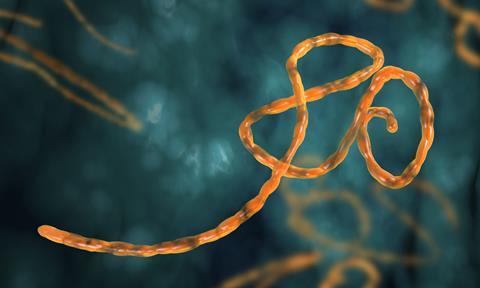Scientists have developed a quick, cheap, safe and field-deployable method to detect the Ebola virus in unprocessed whole blood.

Source: Shutterstock The World Health Organization declared an end to the most recent Ebola epidemic in January 2016
Scientists have developed a quick, cheap, safe and field-deployable method to detect the Ebola virus in unprocessed whole blood.

Source: Shutterstock The World Health Organization declared an end to the most recent Ebola epidemic in January 2016